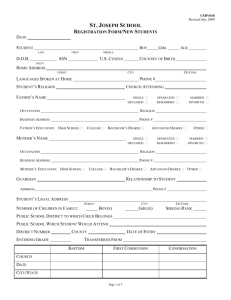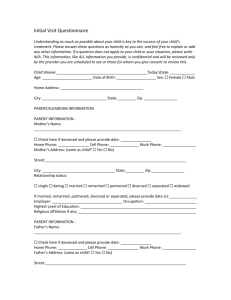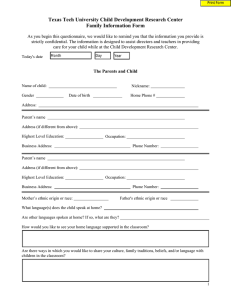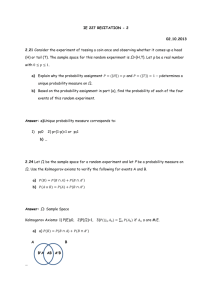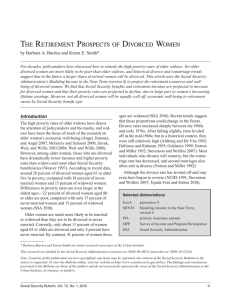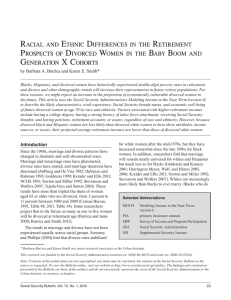A The Church as a Reconciling Community * Eberhard Shockenhoff
advertisement
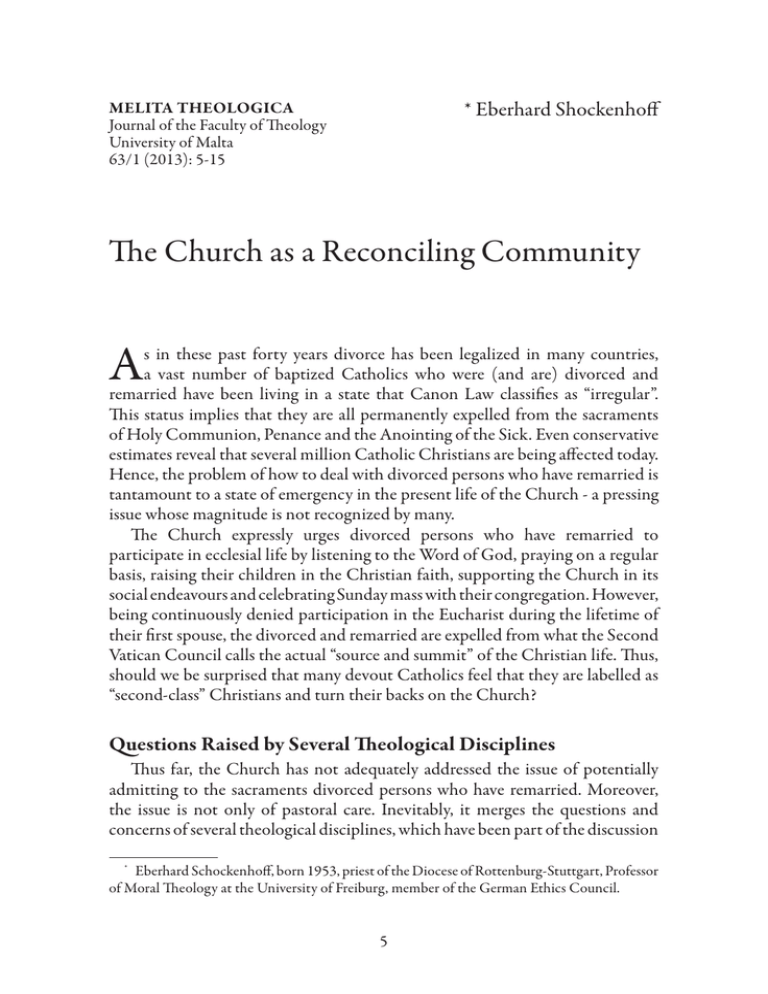
* Eberhard Shockenhoff Melita Theologica Journal of the Faculty of Theology University of Malta 63/1 (2013): 5-15 The Church as a Reconciling Community A s in these past forty years divorce has been legalized in many countries, a vast number of baptized Catholics who were (and are) divorced and remarried have been living in a state that Canon Law classifies as “irregular”. This status implies that they are all permanently expelled from the sacraments of Holy Communion, Penance and the Anointing of the Sick. Even conservative estimates reveal that several million Catholic Christians are being affected today. Hence, the problem of how to deal with divorced persons who have remarried is tantamount to a state of emergency in the present life of the Church - a pressing issue whose magnitude is not recognized by many. The Church expressly urges divorced persons who have remarried to participate in ecclesial life by listening to the Word of God, praying on a regular basis, raising their children in the Christian faith, supporting the Church in its social endeavours and celebrating Sunday mass with their congregation. However, being continuously denied participation in the Eucharist during the lifetime of their first spouse, the divorced and remarried are expelled from what the Second Vatican Council calls the actual “source and summit” of the Christian life. Thus, should we be surprised that many devout Catholics feel that they are labelled as “second-class” Christians and turn their backs on the Church? Questions Raised by Several Theological Disciplines Thus far, the Church has not adequately addressed the issue of potentially admitting to the sacraments divorced persons who have remarried. Moreover, the issue is not only of pastoral care. Inevitably, it merges the questions and concerns of several theological disciplines, which have been part of the discussion Eberhard Schockenhoff, born 1953, priest of the Diocese of Rottenburg-Stuttgart, Professor of Moral Theology at the University of Freiburg, member of the German Ethics Council. * 5
